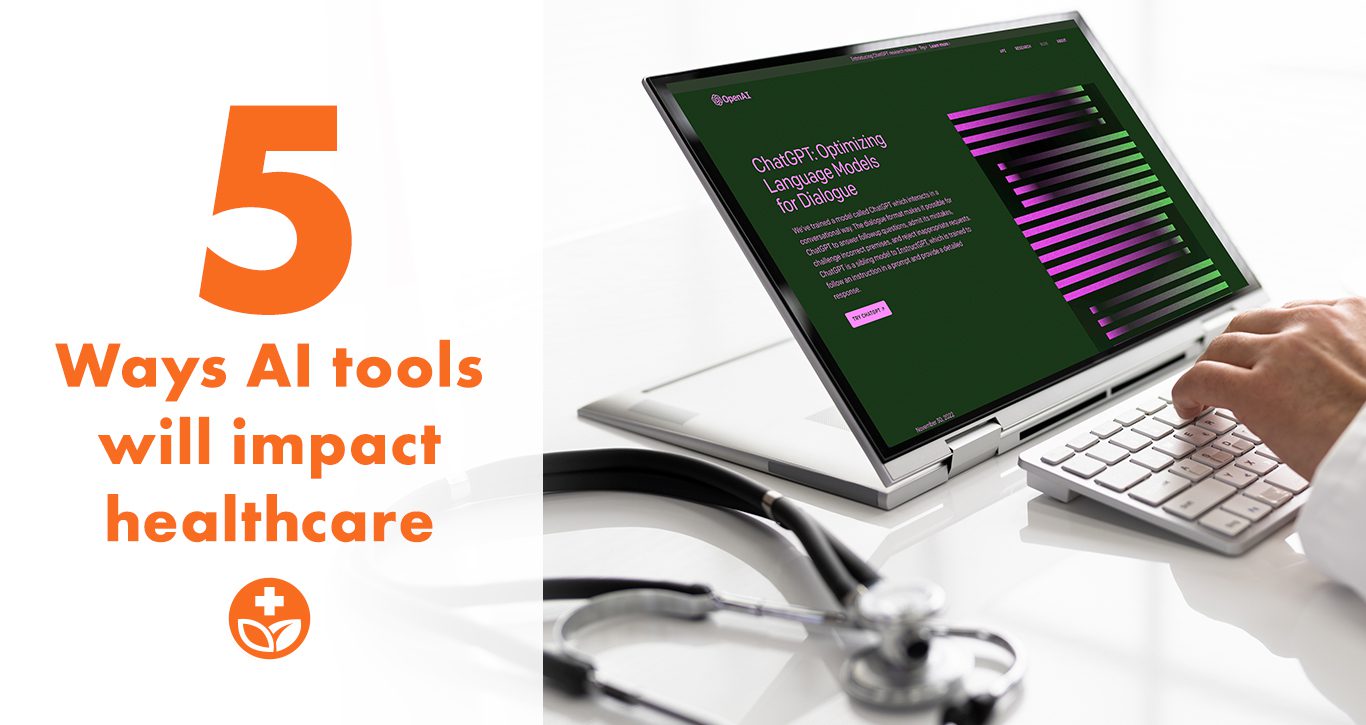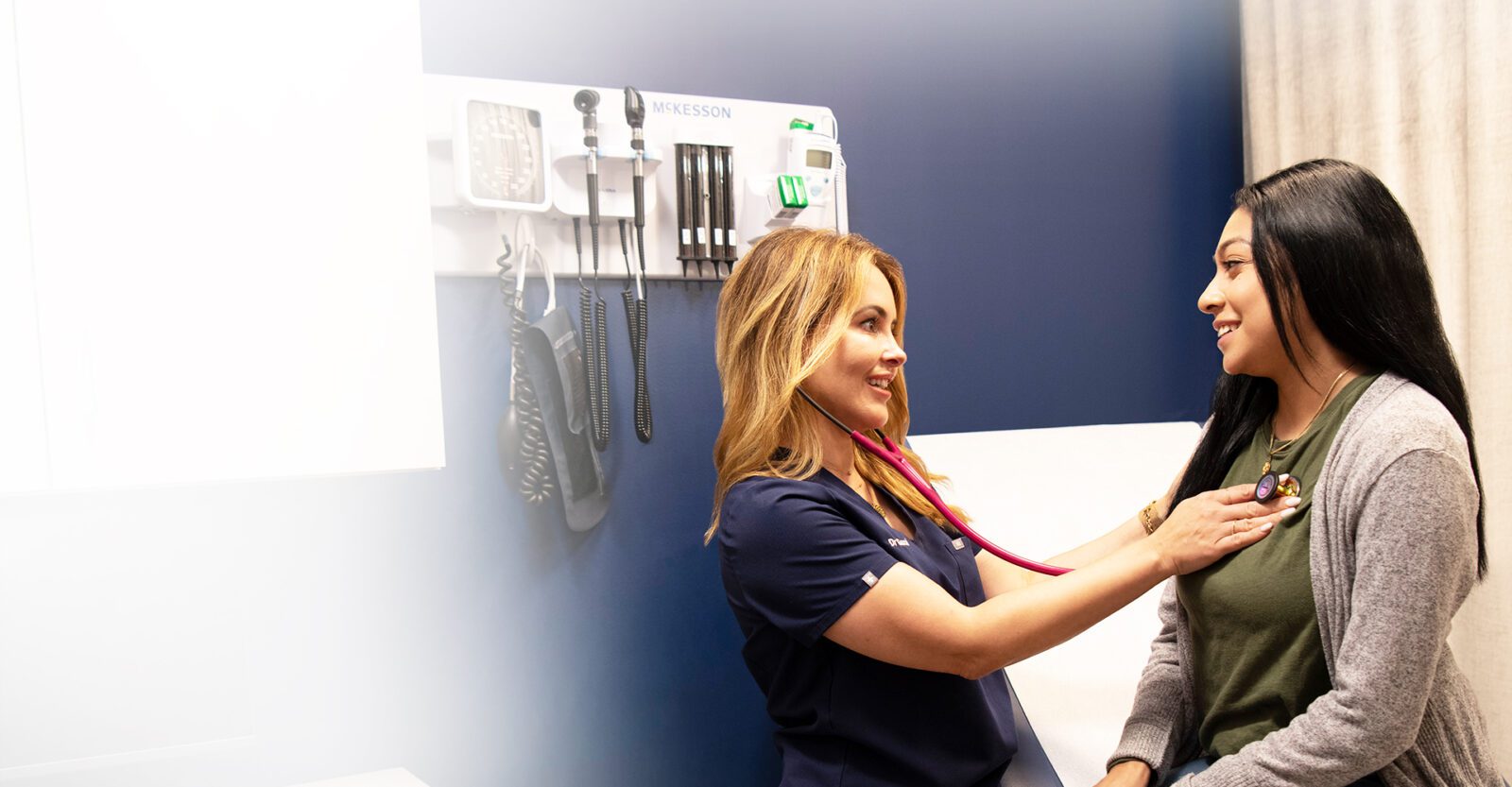5 Ways ChatGPT will Impact Healthcare

There is a lot of chatter about ChatGPT these days, and for good reason. If you have not already experimented with this AI tool, I highly recommend you do so. In healthcare, I’ve seen a doctor on TikTok share how he used ChatGPT to write a letter to an insurance company asking them to cover a particular diagnostic test. Other healthcare professionals are consulting AI tools for content and educational materials. Patients are using it to aggregate information on the web about particular diagnoses and treatment advice.
The impressive and vast use cases for ChatGPT got me thinking about how it will be used in healthcare in the coming months and years. So I asked ChatGPT. Why not go to the source, right? Per ChatGPT, below are five ways the AI tool will impact healthcare, and my thoughts on each.
Efficiency
“ChatGPT can assist healthcare professionals with tasks such as medical documentation and data analysis, which can help increase efficiency and reduce workload.”
This is absolutely true. At a high level there are many possibilities for ChatGPT to improve efficiency and provide checks and balances when considering a diagnosis or course of treatment, particularly for a more complex patient.
Improved patient care
“ChatGPT can be used to create virtual health assistants that can help patients schedule appointments, answer medical questions, and provide information about treatments and medications, this can help improve patient care by providing more accessible and accurate information to patients.”
Scheduling an appointment should be easy, not a daunting and time consuming task. Online booking was implemented from the start at Innovative Care. We put the control in the patient’s hands. Shockingly, this is still not the norm in healthcare. Most medical groups still require you to call and schedule, often waiting on hold for an extended period of time while you attempt to line up schedules. The ability to consult, in real-time, with an AI tool could aid in scheduling, allow patients to ask questions and more. AI tools are also a good resource for providers who can use the tool to conduct quick research and consider every possibility on complex cases. ChatGPT will be particularly useful for improving patient care in remote locations where access to specialists is more difficult.
Better decision making
“ChatGPT can be trained on medical records and be used to assist doctors in the diagnosis of diseases by suggesting possible diagnosis based on symptoms and medical history, this can help improve the decision making process and make it more accurate.”
AI tools can read medical records and surmise possible diagnoses. Think of it as a second set of eyes. Yes, your medical provider will review your history and previous lab results, but it’s possible for something to be missed in the notes. Having an AI tool also review the information may improve quality and decision making.
Cost savings
“ChatGPT can help reduce the costs associated with healthcare by automating repetitive tasks and reducing the need for human labor.”
AI tools are already being used for healthcare billing, and the performance is astounding. At Innovative Care, we use a tool for coding that consistently works at 99 percent accuracy. When coding is done by a manual process only, the margin of error typically results in about 85% accuracy. So not only is AI billing faster, it’s also proving to be more accurate.
Medical research
“ChatGPT can be used to help researchers identify patterns and insights in large datasets of medical literature and clinical trial data, this can help improve the quality of medical research and accelerate the development of new treatments and therapies.”
The ability to personalize medicine beyond what a human or algorithm can do now will be groundbreaking. To take into consideration a patient’s medical history, family history, medications, labs, vital signs over 5 years, lifestyle and preferences could prevent adverse reactions and improve compliance.
Of course it’s too soon to fully implement now, and ChatGPT itself adds the caveat that ‘further developments and research are needed before ChatGPT can be fully integrated into healthcare’. But mark my words – ChatGPT and AI will change the way we treat patients and manage medical practices forever. So let’s get ready to change our models and welcome this tool.
